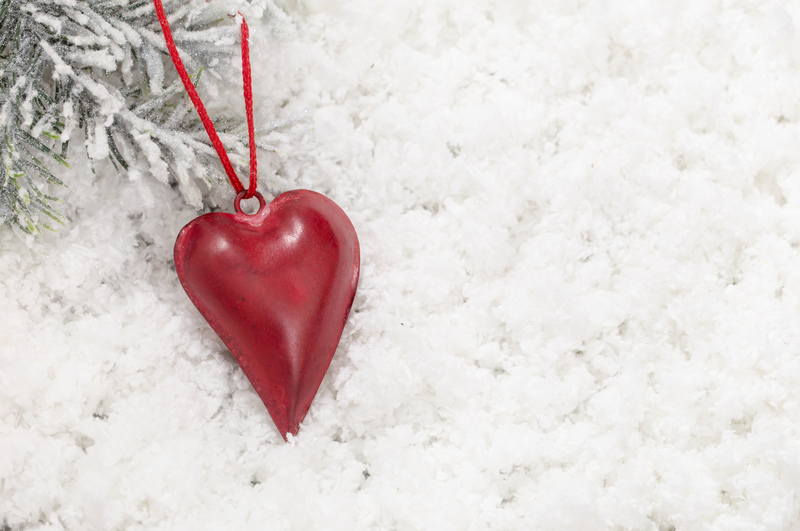The Right Way to Recycle Your Metal Pots and Pans: A Complete Guide
Have you ever wondered what to do with your old, scratched, or no-longer-needed pots and pans? Instead of sending them to a landfill, recycling them is a sustainable option. However, the right way to recycle your metal cookware isn't always obvious. From cast iron skillets to non-stick frying pans, each type requires different handling. This comprehensive article will explore environmentally responsible methods and local resources for recycling your unwanted cookware, helping you contribute to a greener planet.

Why Is Recycling Metal Cookware Important?
Discarded pans and pots contribute to environmental pollution and waste valuable resources. Metals are highly recyclable and can be repurposed into new products, saving raw materials and energy. By recycling your metal cookware correctly, you prevent landfill buildup, reduce greenhouse gas emissions, and support the circular economy.
- Metals like aluminum and stainless steel are endlessly recyclable.
- Landfill-bound cookware can take centuries to decompose, releasing toxic substances.
- Recycling reduces mining and energy needs for virgin materials.
Types of Metal Used in Cookware
Understanding what your pots and pans are made of is the first step towards recycling them properly. Let's review the most common cookware materials:
- Stainless Steel: Durable, rust-resistant, and 100% recyclable.
- Aluminum: Lightweight, conducts heat well, easy to recycle.
- Copper: Excellent heat transfer, can often be sold to scrap yards.
- Cast Iron: Extremely durable, heavy, recyclable in most scrap programs.
- Non-Stick (Teflon or ceramic-coated): Requires special care; coatings complicate recycling.
- Enameled Cookware: Metal core with vitreous enamel coating; some facilities accept them.
How to Identify Your Pan's Material
Most cookware is labeled on the bottom. If not, hold a magnet to the surface:
- If it sticks, it's probably ferrous metal like cast iron or some stainless steels.
- If it doesn't, it could be aluminum or copper.
Knowing the material helps you find the right recycling stream for your item.
Can You Place Metal Pots and Pans in Curbside Recycling?
This is the number one question for many.
In most cases, you cannot place pots and pans in your regular curbside recycling bin, especially if they are large or have plastic, rubber, or non-stick coatings. Most curbside programs are designed for specific types of metal cans and tins (not for complex kitchenware).
Why Not?
- Shape and size may jam recycling machinery.
- Non-metal parts, handles, or coatings contaminate recycling streams.
- Mixed materials confuse sorting systems.
Step-by-Step Instructions: The Right Way to Recycle Your Pots and Pans
1. Inspect and Clean Your Cookware
- Remove any food residue, grease, or burnt-on material.
- Detach as much of the non-metal material as possible (e.g., plastic handles, lids, knobs).
Tip: Clean and separated pans are more likely to be accepted at recycling facilities.
2. Assess Reusability
- Is the pot or pan still usable? Consider donating it to a thrift store, homeless shelter, or a friend.
- Try offering items on freecycle or neighborhood forums before recycling.
Donation is always more sustainable than recycling if the item is functional!
3. Contact Local Recycling Centers or Scrap Yards
Look for nearby metal scrap dealers or public recycling drop-off sites. Most scrap yards accept metal cookware, provided it's clean and metal-only. Some even offer reimbursement based on metal weight and type.
- Search online for "metal recycling center near me" or use local government websites to find facilities.
- Confirm which types of metal they accept (aluminum, steel, cast iron, copper).
- Ask if they accept items with non-metal elements attached; if not, remove all non-metal parts.
4. Special Disposal for Non-Stick or Coated Pans
Traditional non-stick pans (Teflon/PTFE) and ceramic-coated pans should not go in standard metal recycling. The coatings complicate recycling and can harm recycling equipment.
- Some manufacturers and retail stores offer 'take-back' recycling for non-stick cookware when you buy a new one.
- If local recycling isn't an option, dispose of them through your landfill trash--never try to burn Teflon.
- For rare specialized recycling, check Earth911 or similar databases for collection programs.
5. For Cast Iron and Stainless Steel: Your Best Recycling Bets
- Cast iron and stainless steel are widely accepted at metal recycling centers.
- Remove wooden handles or silicone grips before dropping off.
- Large quantities of pans (from restaurants, for example) can be weighed and possibly sold as scrap metal.
6. For Aluminum and Copper Cookware
- Like cast iron, aluminum and copper are in high demand at scrap yards due to their infinite recyclability and value.
- Clean, separated materials fetch the best prices.
- For copper, strip off any attachments to maximize value.
Alternative Ways to Reuse and Repurpose Old Pots and Pans
If the cookware is no longer good for cooking but still structurally sound, consider these creative upcycling ideas before recycling:
- Planters and Garden Trays: Add drainage and transform old pots into quirky garden planters.
- Organizers: Use pans for organizing tools, art supplies, or office items.
- Decor: With a coat of paint, hang old pans as vintage wall art.
- Bird Feeders or Baths: Repurpose them for feathered friends outdoors.
Upcycling extends the life of your items and reduces environmental impact.
FAQ: Everything You Need to Know About Recycling Cookware
Q: Can I recycle my non-stick pans in the blue bin?
A: No, non-stick pans should not go in curbside recycling due to chemical coatings. Bring them to specialized collection points or dispose of them in landfills if no recycling option exists.
Q: What should I do with glass lids?
A: Glass lids are not accepted in glass recycling; most centers recommend trashing them unless your center has a program for tempered glass.
Q: Do all metal recycling centers accept cookware?
A: Not always--call ahead to confirm acceptance and required preparation (cleaning, removal of non-metal parts).
Q: Is it possible to recycle pots and pans with burned or melted spots?
A: Yes, as long as the primary material is metal and coatings are removed (if required), recycling centers can process them regardless of cosmetic blemishes.
Finding a Local Solution: How to Locate a Pot and Pan Recycling Center
- Use Your Municipality's Website: Most towns have a recycling directory. Search for "scrap metal recycling" or "household item disposal."
- Earth911 and RecycleNation: These national databases help you find local recycling programs by item type and zip code.
- Contact Appliance Recyclers: Some accept kitchen metalware alongside larger appliances.
- Big-Box Retailers: Stores like Best Buy and Home Depot occasionally offer kitchen recycling events.
If none accept pots and pans, look for scrap metal buyers who take household goods.
The Environmental Benefits of Proper Metal Cookware Recycling
Why put in the effort? Here are the long-term impacts (all backed by environmental studies!):
- Reduces landfill waste and keeps toxic substances out of the environment.
- Conserves natural resources by reusing existing metals rather than mining new materials.
- Saves energy--recycling metals uses far less energy than raw material production.
- Supports local economies by channeling material to scrap recyclers and manufacturers.
- Encourages more responsible manufacturing with recycled inputs.

Summary: Recycling Your Metal Pots and Pans the Right Way
To recap: Don't toss your old pots and pans in the trash or your blue bin! Instead:
- Identify the main metal ingredient in your cookware.
- Clean and separate from plastic, rubber, and glass parts.
- Contact local scrap metal recycling centers.
- Try creative reuse or donation if the item is still functional.
- For non-stick or coated pans, research special programs or dispose responsibly.
Every proper recycling action counts! The right way to recycle your pots and pans extends our resources, protects the planet, and might even earn you a bit of cash!
Ready to clear out those old pans?
Locate a recycling center nearby, and don't forget to share this guide so others can learn the rights and wrongs of recycling their metal cookware. Let's make sustainable living easy and accessible for everyone!
Related Resources for Metal Recycling
- US EPA - Recycling Basics
- Earth911: Recycling Locator
- RecycleNation: Find What and Where to Recycle
- Call2Recycle: Household Item Recycling
By recycling your metal pots and pans responsibly, you're taking a meaningful step towards a cleaner, greener future. Make the right choice--recycle smart!
